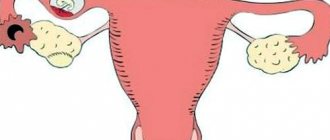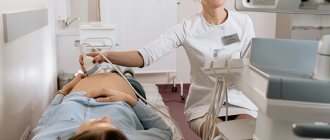What happens to the fetus?
We have already found out that fertilization of the egg occurs at this time. Moving along the fallopian tube, the mature egg moves to the uterus, leaving the ovary. Sperm penetrate from the uterus into the fallopian tubes, one of them reaches the egg. From the moment the sperm and egg merge, the development of the baby begins.
Its genetic set is the genes of the egg and sperm. The baby's gender, skin, eye and hair color, and other congenital characteristics have already been determined. In 9 months, a unique person will be born, similar to both dad and mom.
Risk factors
Immediately after conception, the mother's body begins to change. While this is completely unnoticeable, it is still worth monitoring your health more carefully. It is in the 3rd week of pregnancy that the most dangerous period occurs. At this point, the embryo is extremely susceptible to the effects of drugs and the negative consequences of medical intervention.
Due to the influence of various factors, the egg may not attach to the walls of the uterus, and the woman will not even understand that a miscarriage has occurred and will not know that she was pregnant. If you suddenly experience severe pain in the lower abdomen or heavy bleeding that is in no way related to menstruation, consult a doctor immediately!
What happens in a woman's body?
A cell containing a complete double set of chromosomes is called a zygote. Within 24 hours it begins to divide rapidly. One cell turns into 32 in three days, and by the end of the week this number reaches 250 cells. Now your fruit is called a morula and its size is often compared to a grain of sand, and its shape to a mulberry.
Prenetics is a way to find out the risk of chromosomal abnormalities
already from the 10th obstetric week. Recommended for every pregnant woman. Duration of two days!
More details
Basic rules for this period:
- Don't restrict yourself in food;
- Don't go on diets;
- There should be at least three meals a day (you can eat five times, but in smaller portions);
- Preference should be given to hearty food so that between meals there is no feeling of hunger.
Some foods are considered potentially dangerous, so it is better to exclude them from the earliest possible date. These include:
- Undercooked, undercooked and dried meat - it can retain viable worm larvae;
- Raw seafood. Lovers of sushi and other exotic dishes risk getting food poisoning or becoming infected with helminths;
- Fast food. This food is harmful in itself, and moreover, it is very often prepared in unsanitary conditions;
- Raw eggs. There is a risk of getting salmonellosis;
- Raw milk. From it you can become infected with brucellosis, tuberculosis, salmonellosis, leptospirosis, Staphylococcus aureus and other infections;
- Soft varieties of cheese. Sometimes they are the source of an acute infectious disease - listeriosis. If you are a big fan of this cheese, use it after heat treatment (for example, bake it in some dishes);
- Liver pates in large quantities. Frequent use of this product can lead to an excess of vitamin A in the body, which is dangerous for a pregnant woman;
- Products that contain caffeine (strong black and green tea, coffee). If you drink more than five cups of these drinks a day, you risk premature birth, miscarriage, or low birth weight of the baby. The best option is no more than three cups per day.
What other changes occur in the body of the expectant mother?
As before, the characteristic symptoms of pregnancy in the third obstetric week are invisible, or even completely absent. A woman may not notice any specific sensations during this period. However, the expectant mother’s body is ready to receive a fertilized egg, so there is a possibility that, as two weeks earlier, barely perceptible painful sensations in the lower abdomen and lower back will appear, as well as increased libido.
Already known changes in the mammary glands, their engorgement and increased sensitivity may continue.
It is possible that taste preferences will change towards salty or sweet.
The nature of vaginal discharge changes. Mucus helps protect the egg from external infections.
How you feel
At this time, you will not notice any changes in your condition, it is too early, and many do not even realize that they are pregnant, because not a single menstrual cycle has been missed yet.
You may only experience sensations characteristic of the ovulation period:
- Mild cramps and short-term nagging pain in the lower abdomen;
- Increase in the number of discharges;
- Change in the nature of the discharge (they become more viscous and sticky);
- Pain in the mammary glands.
You may also feel slightly unwell. Frequent symptoms are weakness, drowsiness and fatigue.
What should an expectant mother not do at this time?
- Rid yourself of negative emotions and physical activity, spend more time in the fresh air, get proper rest and get enough sleep.
- Do not lift weights, refuse dangerous and tiring sports. Now more than ever you need peace and good mood.
- Completely give up alcohol and cigarettes, even eliminate passive smoking.
- Do not visit places where there is a risk of contracting an infection.
- Avoid X-ray examinations that are risky for the baby, as well as uncontrolled use of medications.
Ultrasound examination of a woman 3 weeks after IVF
After testing for the level of human chorionic gonadotropin in the blood, a woman can already know that she is carrying a new life within herself. After 3 weeks of pregnancy, what is happening to the fetus can be seen using ultrasound.
At this stage, the embryo is a tiny ball with a barely visible head and tail, surrounded by a fertilized egg. Ultrasound diagnostics in early pregnancy is carried out in two ways:
- Transvaginal, in which a small sensor emitting ultrasound waves is inserted directly into the vagina. It is this procedure that allows you to examine in more detail the condition of the uterus and the fertilized egg in it. To prepare for the scan, no special preparations are required, except for eliminating foods that cause increased gas formation from the diet a few days before the ultrasound, as well as emptying the intestines and bladder immediately before the procedure;
- It is recommended to use the transabdominal method for longer periods. Such an examination does not require any preparation, but is also less detailed due to the greater number of structures in the ultrasound path.
It is ultrasound in the third week after the introduction of embryos that is a method that allows one to reliably determine the presence of pregnancy, since IVF, unfortunately, cannot always guarantee a successful result.
In addition, using ultrasound scanning you can see:
- Number of viable embryos in the uterus;
- Location of the fertilized egg;
- Changes in the ovaries.
The first ultrasound is extremely important to exclude serious pathologies such as ectopic pregnancy, fetal development arrest, determination of multiple pregnancy and the need for further or correction of maintenance therapy.
Recommendations and prohibitions
Once the test shows pregnancy, your lifestyle can no longer remain the same. The daily routine, nutrition, and physical activity are subject to adjustment.
- Bad habits. It is obvious to any sane woman that smoking, alcohol abuse and pregnancy are mutually exclusive. Ideally, it is necessary for both partners to give up tobacco and alcohol at the planning stage, especially since addictions negatively affect not only the health of future offspring, but also reproductive function in general.
- Emotional background. As already mentioned, under the influence of hormones a woman becomes more sensitive. Any nervous shocks, stress and experiences of a pregnant woman are contraindicated, so the task of loved ones is to protect her as much as possible from negative influences from the outside.
- Nutrition. The common myth that an expectant mother is supposed to eat for two can do a disservice in the form of a set of extra pounds, and in later stages – increased blood sugar levels, blood pressure and swelling. You need to eat in moderation, focusing on your own feelings, but try to stick to traditional meals (breakfast, lunch, dinner). The diet should include plenty of fiber-rich vegetables, which will help avoid bowel problems, and protein. You can use pre-soaked nuts or fresh berries as a snack. Maria Prokhorova recommends completely eliminating white bread, sweet, fatty, smoked, semi-finished and processed meat products (sausage, sausages). As for taking vitamin complexes, they should be prescribed by a doctor.
- Excessive physical activity. Lifting weights and running multi-kilometer marathons is of no use to a pregnant woman. But moderate exercise will only be beneficial. The ideal option is a swimming pool, yoga, walking.
- Intimacy. There are no strict contraindications for sexual activity during this period, of course, provided there is mutual attraction and the partner is in good health.
pixabay.com/
Pregnancy is by no means a disease, however, both the pregnant woman herself and her loved ones must understand that the load on the body during this period increases significantly, therefore, caring attitude on the part of others and the woman herself is extremely important for the health of mother and baby.
What sensations can you experience at 3 weeks?
It is at the 3rd week of pregnancy that most of the signs of an “interesting situation” make themselves felt. At this time, many women's breasts swell and become painful, and their nipples darken. At 3 weeks from conception, the first signs of toxicosis appear. Some dishes suddenly become damn attractive, while others literally make you sick. The same goes for smells. Nausea can haunt the expectant mother not only in the morning, but throughout the day.
In addition, at the 3rd week of pregnancy the following signs are observed.
- Fatigue and drowsiness, which are caused by hormonal changes and the fact that the body spends energy resources on the development of the baby.
- Pain or cramping in the lower abdomen. They appear when the embryo attaches to the uterus, or when it stretches. If the pain is barely noticeable, then there is no need to worry. If discomfort is noticeable, consult a doctor; this may be a symptom of a frozen or ectopic pregnancy.
- Minor vaginal discharge. Usually these are brownish smears that a woman finds on her underwear. Sometimes such discharge is confused with the onset of menstruation, but most often it indicates that the embryo has successfully implanted in the uterus.
- Bloating. It is caused by hormonal changes and changes in the diet of the expectant mother.
- Sensitivity and even soreness of the breasts.
- Mood swings influenced by hormones. Some girls admit that they want to cry or laugh.
- Frequent urination. This is due to the fact that a pregnant woman drinks more fluids and her kidneys work more actively.
Photo: pexels.com
Period
Menstruation is the main indicator of pregnancy in the 3rd week from conception, or rather not the periods themselves, but their absence. This is the week they should start if you have a regular 28-day cycle. Haven't started? Do you have strange sensations in your lower abdomen or chest pain? Then it's time to buy a pregnancy test. At week 3, almost any test strip will show whether you are pregnant or not.
Be careful - at this time, some girls notice brownish discharge on their underwear. They do not necessarily indicate the onset of menstruation, sometimes just the opposite - they are a sign of successful conception.
Stomach ache
Some women in the early stages of pregnancy experience unpleasant sensations in the lower abdomen. The pain is similar to what some people experience before their period. If the pain is moderate and does not cause you any discomfort, there is no need to be alarmed. Sometimes it is provoked by a visit to the gynecologist or sexual intercourse, or maybe it is associated with intestinal obstruction caused by hormonal changes.
However, if pain does not give you peace, it is better to report it to your gynecologist. Sometimes acute, sharp spasms can be a signal of serious problems: cervical erosion, frozen or ectopic pregnancy.
In these cases, there is a high risk that the woman will require hospitalization.
“At the 3rd week, serious changes occur with the baby, during this period there are risks of miscarriage, so pain must be treated carefully,” explains gynecologist Dina Absalyamova . “Our life now consists of constant stress. Expectant mothers cannot lock themselves in the apartment and avoid society, and it is this that provokes anxiety. During this period of bearing a baby, try to take care of yourself as much as possible, avoid worries and unpleasant emotions.
At a period of 3-4 weeks, an ectopic pregnancy also makes itself felt. At this time, the embryo, if it grows outside the uterus, begins to cause discomfort. It stretches the tissue, most often on the right or left side of the lower abdomen, where the fallopian tubes are located. This is partly why pain during an ectopic pregnancy is often confused with appendicitis. If you experience such pain, be sure to consult a gynecologist or go for an ultrasound. An ectopic pregnancy is dangerous and should be terminated as soon as possible.
Find out more
4th week of pregnancy: what happens to the body
Brown discharge
A whole range of changes occur to the mother at 3 weeks of pregnancy, including brownish discharge. If they are insignificant, this may indicate that the embryo has attached to the uterus. But in some cases, discharge should alert the expectant mother.
“Brownish or bright red discharge, along with abdominal pain, may indicate a threat of miscarriage,” says obstetrician-gynecologist Dina Absalyamova . – You need to take bright scarlet discharge especially seriously, they indicate fresh bleeding. It can happen when the fertilized egg, for example, is rejected from the uterine cavity. In such a situation, you need to call an ambulance and go to a gynecological hospital.
Diagnosis of pathologies
It is necessary to begin the examination by visiting a gynecologist and conducting an examination. Then the doctor may prescribe various tests and instrumental examinations.
In a normal pregnancy without pathological signs, an ultrasound scan at 3 weeks is not necessary. It is required only to confirm that ovulation has occurred. In other cases, it will not be possible to obtain any information through this examination method.
If an ectopic position of the egg is suspected, it will be quite informative: the image shows that the fetus has attached itself to the tube and has not passed into the uterus. For an accurate examination, the transvaginal ultrasound method is used.
X-rays, MRIs and other instrumental examinations at 3 weeks of pregnancy are used only in rare cases.
So, let's start, 29 first signs of pregnancy in the early stages:
- Implantation bleeding . When a fertilized egg enters the walls of the uterus, a slight discharge of blood may occur. If there is profuse bleeding, you should immediately consult a doctor.
- Nagging pain in the lower abdomen can also be the first signs of pregnancy before menstruation. You will feel slight cramps, the uterus will contract and give you the feeling of premenstrual pain.
- Basal temperature . Its increase - this first sign of pregnancy is one of the most accurate, with the exception of serious gynecological diseases. Let us remind you that the basal temperature is measured in the rectum in the morning; during pregnancy it will remain more than 37 degrees.
- Delayed menstruation . However, it is worth remembering that there can be many reasons for cycle disruption, and to accurately determine the first signs of pregnancy, it is necessary to exclude possible causes of delay, such as stress, menopause, excessive physical activity, lack or, conversely, excess weight and others.
- Menstruation is not like previous ones . This sign of pregnancy in the first days can manifest itself as: less abundant discharge, a shift in the cycle, a change in its duration.
- Toxicosis . The most common first sign of pregnancy before delay. Morning sickness and malaise may indicate pregnancy.
- Breasts swell. This is another common sign. You will notice that the breasts are swollen and enlarged.
- Breast sensitivity increases.
- The labia will change color , they will become more swollen and take on a bluish tint. As a rule, this sign is noticed by the gynecologist during examination.
- Fatigue and drowsiness are also sure signs of a pregnant woman.
- Increased sensitivity to smells is one of the first signs of pregnancy before your period. Your sense of smell will change, smells will be more pronounced, and your feelings for them will be heightened.
- , a change in taste preferences may also be a sign . You may want new foods, in different combinations.
- Intuition . Many women feel their pregnancy intuitively.
- An increased urge to urinate, mainly at night, may also indicate pregnancy.
- Changes in sexual desire . This occurs due to changes in the sensitivity of many receptors in the body of a pregnant woman.
- Montgomery tubercles on the areola of the breast - small bumps.
- The appearance of age spots on the face .
- A dark line in the lower abdomen , as a rule, appears by the end of the first trimester and is a sign of pregnancy at 2-3 months.
- The appearance of spider veins not only on the legs, but also on the face, neck, and chest.
- Stretch marks . This sign of pregnancy appears after 3 months, when the tummy begins to grow. Stretch marks appear due to rupture of collagen fibers, which are responsible for the elasticity of the skin.
- A sign of pregnancy will also be an increase in the size of the uterus , this will be determined by the doctor at the appointment.
- Abdominal enlargement . This sign becomes clearly visible after the third month, but in some women the tummy begins to increase in the second month of pregnancy.
- Changes in the shape of the uterus can also be determined at an ultrasound appointment with a gynecologist.
- Positive pregnancy test . As a rule, modern tests only err in the opposite direction - they may not show pregnancy; if the test shows two lines, then this is one of the most accurate first signs of pregnancy before menstruation.











